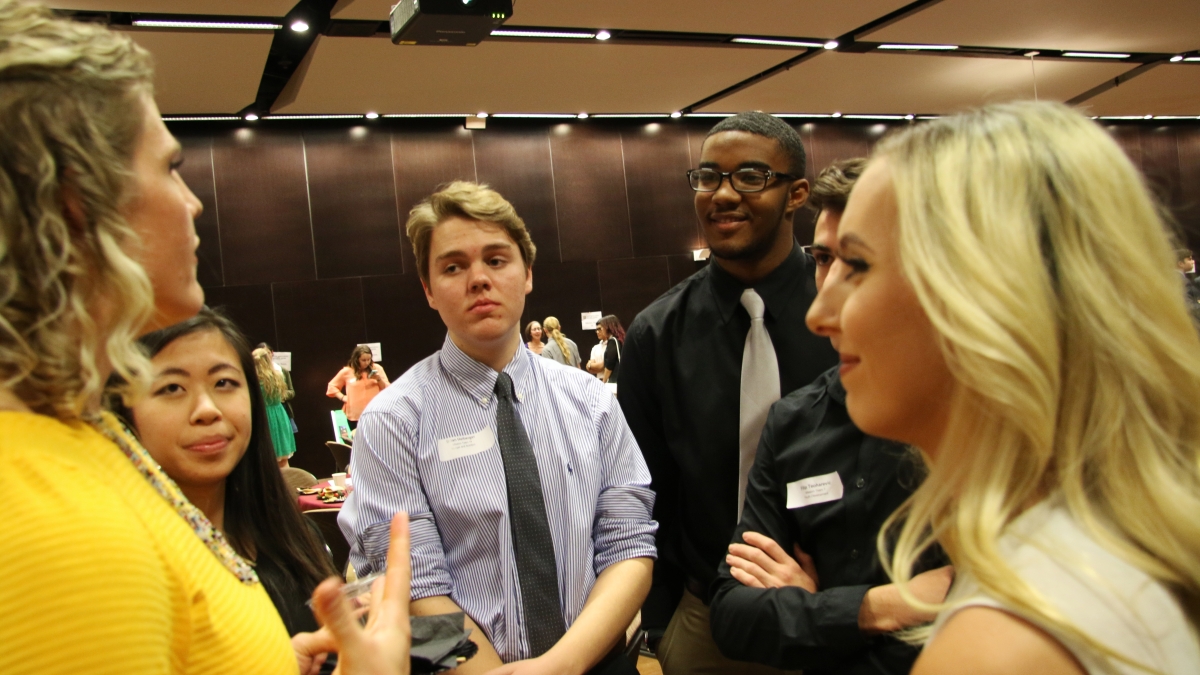Following a contentious presidential election that has left many wondering how to heal a divided nation, an Arizona State University leader has hit upon a potential solution: service.
“Service inherently binds us to our citizenship as Americans, not to a political party or ideology,” said Brett Hunt, founding executive director for ASU’s Public Service AcademyThe Public Service Academy is a unit inside the College of Public Service and Community Solutions..
The academy was launched last year in part on the idea that “we’ve grown apart as a nation” and that we need to find ways to “get us back together,” Hunt said.
Through the program, he aims to develop leaders by leveraging and combining civilian and military experiences, and he recently assigned program students to learn about opposing political viewpoints and foster connections.
“My call to action is: Go this weekend and read articles from places you’ve never read before. Go this weekend and talk to someone whose ideology and agenda is different from yours. And then come not to debate, but to have a thoughtful discourse with that person.”
He wants it to become an ongoing process that will help reduce isolation and improve collaboration.
“We live in a society now where we can choose to consume whatever media we want,” Hunt said, adding later, “I can also unfriend people who I don’t agree with. That kind of thinking further divides us.”
Program participants got a jump-start on the process this month at an end-of-year networking event, “On Leadership,” when Hunt tasked them with locating 25 community leaders in the crowd of about 300 so they could interview them about their experiences and seek to establish professional connections.
Business major Rylee Dunkel saw the potential in the exercise. Networking builds relationships, and “it’s always easier to help out a friend than it is a stranger.”
It’s part of the academy’s strategy of training participants to bring others together.
“No matter who you voted for in this election, it was pretty clear that there was a lack of listening by leadership on both sides,” said Askshai J. Patel, an academy instructor. “Now is an opportunity to say, ‘A new group of leaders needs to do things differently.’ And we can and do teach them this at the academy.”
For opportunities to apply their leadership skills, academy participants volunteer and are encouraged to join organizations such as AmeriCorps, Teach for America, Vista, Peace Corps and 21st Century Conservation Service Corps.
Dunkel spent a semester helping Fresh Express, a mobile market that brings produce to food deserts in Phoenix. After that experience, he wants to create jobs for low-income people and veterans transitioning from military to civilian life.
“It’s certainly our obligation to help those less fortunate than us,” Dunkel said. “When people succeed, everybody succeeds.”
Top photo: Students of the Public Service Academy partake in a networking event at their Nov. 18 "On Leadership" seminar at ASU's Memorial Union at the Tempe campus. Photo by Imani Stephens
More Law, journalism and politics

Cronkite School launches Women Leaders in Sports Media live-learn program
Women in a new sports media program at Arizona State University got a solid game plan from a sports veteran at an Aug. 20 welcome event.“Be humble, be consistent and be a solver,” Charli Turner…

ASU center to host the Pursuits of Education and Excellence Symposium
The Center for the Study of Race and Democracy (CSRD) at Arizona State University is introducing the Pursuits of Education and Excellence Symposium as part of an ongoing initiative to commemorate the…
ASU journalism students dominate NATAS Student Production Award nominations
Students at Arizona State University’s Walter Cronkite School of Journalism and Mass Communication dominated the nominations field of the prestigious Rocky Mountain Southwest Chapter of the National…
